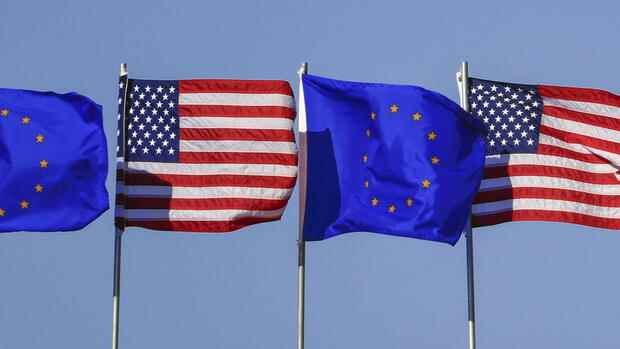The Federal Chancellery wants to make a new attempt for a free trade agreement with the USA. This was written down in a position paper by Chancellor Wolfgang Schmidt (SPD).
The expected reaction was not long in coming: Seriously now? We’re talking to ourselves about an agreement that neither Washington nor Brussels is seriously pursuing, and which the Germans themselves took to the streets to protest against not long ago. Don’t we have anything more important to do?
Such objections reveal three things: How much a lack of ambition has taken root in Germany during the prosperous years of the past decade. How much the currently emerging trade conflicts between the EU and the USA are underestimated. And thirdly: that the dimension of the turning point in history has obviously not yet been understood by everyone.
When, if not now, it should be correct. A trade agreement with the US would be exactly the geoeconomic signal that is needed after the turning point. After the Russian invasion of Ukraine and the threat of a split in the world economy.
Top jobs of the day
Find the best jobs now and
be notified by email.
Scholz should use the momentum, make a new trade agreement a top priority and start an initiative – why not at the European Council this week? In this way, the chancellor could provide international proof that Germany under his leadership, unlike in the past, not only invokes free trade in Sunday speeches, but actually lives it again.
“TTIP was a lesson in collective political failure”
In the last decade, the last attempt at an agreement with the USA – known as “TTIP” for short – failed, mainly because of fears about the import of chlorinated chickens, which allegedly would end up on German plates. The failure of TTIP was a lesson in collective political failure: CDU Chancellor Angela Merkel acted too timidly, the then SPD Economics Minister Sigmar Gabriel eventually gave up in the face of public resistance, and the Greens threw themselves around the anti-globalization movement.
>> Read also: Guest Commentary – The world is being rebalanced and we continue to weaken our industry ourselves
Germany is still struggling with the consequences of the anti-TTIP hysteria. Since then, the Federal Republic has been seen as an uncertain partner in Washington and Brussels when it comes to trade issues.
At the same time, gains in prosperity were not within reach for the entire EU. One of the few certainties in economics is that free trade creates prosperity. The fact that Germany, of all people, which is benefiting greatly from globalization, ignored this principle and instead prevented the agreement in a globalization-critical pose is a joke in German economic history.
A few years ago, the Germans took to the streets against the agreement.
(Photo: dpa)
A new free trade agreement holds even greater opportunities than TTIP. Not China, but the USA is still the number one export country for German companies. The USA is more likely to expand this position given China’s geoeconomic strategy.
“TTIP 2.0” is a difficult undertaking
If trade barriers were removed, not only would more goods be shipped across the Atlantic, but German companies would also be able to secure their global value chains more easily. An agreement would also offer the opportunity to defuse looming trade conflicts. US President Joe Biden is accused in Brussels of using a series of measures to wrap the old “Buy American” doctrine in a green robe.
Of course, against this background, a “TTIP 2.0” is a difficult undertaking. But Scholz knows best that ambition can pay off on the international stage: When he, as Minister of Finance, made an attempt for a global minimum tax, very few thought that he had any chance of success.
More: Federal Chancellery wants new free trade agreement with the USA
